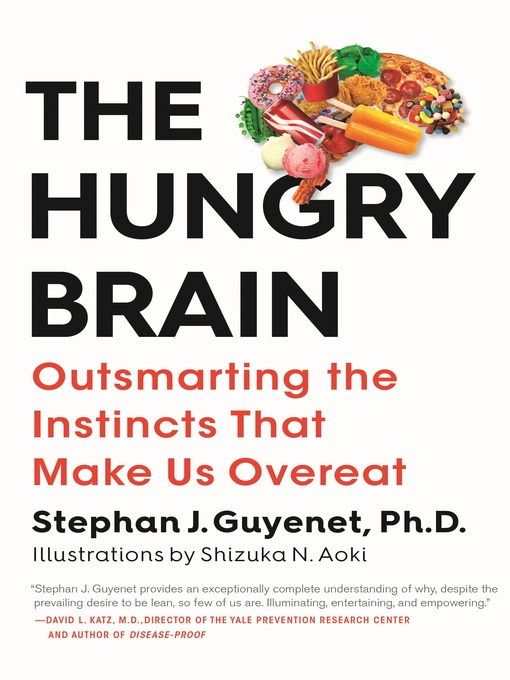A Publishers Weekly Best Book of the Year
From an obesity and neuroscience researcher with a knack for engaging, humorous storytelling, The Hungry Brain uses cutting-edge science to answer the questions: why do we overeat, and what can we do about it?
No one wants to overeat. And certainly no one wants to overeat for years, become overweight, and end up with a high risk of diabetes or heart disease—yet two thirds of Americans do precisely that. Even though we know better, we often eat too much. Why does our behavior betray our own intentions to be lean and healthy? The problem, argues obesity and neuroscience researcher Stephan J. Guyenet, is not necessarily a lack of willpower or an incorrect understanding of what to eat. Rather, our appetites and food choices are led astray by ancient, instinctive brain circuits that play by the rules of a survival game that no longer exists. And these circuits don't care about how you look in a bathing suit next summer.
To make the case, The Hungry Brain takes readers on an eye-opening journey through cutting-edge neuroscience that has never before been available to a general audience. The Hungry Brain delivers profound insights into why the brain undermines our weight goals and transforms these insights into practical guidelines for eating well and staying slim. Along the way, it explores how the human brain works, revealing how this mysterious organ makes us who we are.
- Just Added eBooks
- New York Times Notable Books of 2021
- Rainbow Reads - Fiction
- Rainbow Reads - Nonfiction
- Always Available
- Black Voices
- In the Garden
- Available Now - No Hold List!
- Get Hooked!: Series Starters
- Anti-Racism and Social Justice
- Lifestyles of the Rich and the Famous
- Smart People Read Dummies® Books!
- All Titles
- See all ebooks collections
- No Wait Audiobooks!
- Just Added Audiobooks
- Black Voices
- Get Hooked!: Series Starters
- Now Available From Recorded Books!
- Anti-Racism and Social Justice
- The Outlander Series: Now On Audio!
- Listen to the Stars!
- Available now
- New audiobook additions
- All Titles
- New teen additions
- Most popular
- See all audiobooks collections


